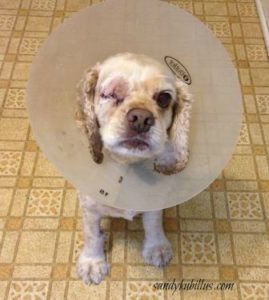The death of the pug placed in an overhead compartment during a United Airlines flight in mid-March was a tragedy. The flight attendant demanded the pet owner place the pet carrier in the overhead compartment because it was too large to fit fully under the seat. The owner argued, but finally obeyed. Passengers state that they could hear the dog barking for at least 30 minutes. http://www.chicagotribune.com/business/ct-biz-united-airlines-dog-dies-overhead-bin-20180313-story.html
My heart goes out to this poor pet owner, who did as she was told—which all too many of us do.
But yet, the question in my mind is why didn’t she take the carrier out of the bulkhead during the flight? Of course hind sight is 20:20, but this is a case where she needed to advocate for her pet. The woman had a toddler and another child with her, so obviously she was overwhelmed. And she did what the “authorities” told her to do.
But what if the “authorities” are wrong? Which they clearly were in this case!
“PETA reminds everyone that it is up to each of us to keep our companion animals safe, and we should never allow someone to put them in harm’s way, including by confining them to a small space with no air flow –no trip is that important.” https://www.cnn.com/2018/03/13/us/united-airlines-dog-dies-trnd/index.html
All of us need to be better advocates for our dogs.
It’s happened to me, and it’s probably happened to you—maybe at the veterinarian. An “authority” tells us something about our pet that doesn’t seem quite right, but yet we trust their judgement over our own.
But if we listened to our gut instinct instead of the “authority” perhaps we would have helped our dog by getting a second veterinary opinion, or tried alternative medicines, or stopped over medicating our dog when they were getting sicker, or at least not getting better.
Several times I have trusted my vet, even when things seemed off. I have learned to get a second opinion. But not always—or not soon enough.
I was not a good advocate for Buffy when she first went to the ophthalmologist last summer and had a clean bill of health for her eyes—only to go blind in one eye the next day from glaucoma. I called the ophthalmologist about her squinting and eye irritation, and the receptionist told me he would call me back. He didn’t do so for over seven hours! And then he gave me the wrong advice.

Hindsight tells me I should have told the receptionist Buffy’s symptoms and taken a photo of her eye (which is what my vet did – then sent it to the ophthalmologist). Although I did call a second time after about three hours and they told me they had several emergencies, I should have left work and taken Buffy to my vet—she can always squeeze in an eye emergency. By the time the ophthalmologist finally saw Buffy, after the weekend, she was blind in that eye.
Another time, I had a vet tell me my limping dog had severe arthritis for months. Finally, after I insisted there was a bigger problem, the vet found out she had bone cancer. This was the first time I did not trust my vet and got a second opinion. If I had done so months earlier, I could have stopped poor Kaylee from suffering so much!
Be an advocate for your dog
I first heard the term “pet advocate” when I read The Dog Cancer Survival Book by Dr. Demian Dressler, DVM. He states, that we know our dog best and have the most to gain or lose. He defines an advocate as taking a leadership role in caring for your dog, not a backseat. You help assemble a team to help your dog, and you are the leader.
You are in charge—not your vet.
According to Being Your Dog’s Best Advocate, we should be making decisions that are in the best interest of our pets—which may conflict with our own desires and goals. You should filter decisions about your pet through a lens of advocacy for their best welfare. It’s about them, not us.
If I had been at home that day the Buffy suffered from high ocular pressure, I might have been a better advocate. Instead, I was at work, busy with a project. My thoughts only occasionally drifted to her eye problem. I made that day about me and not her. I was not a good advocate.
According to 7 Ways You Can Be an Advocate for Your Dog, advocating goes farther than protecting your dog, you need to be proactive. It means sometimes we have to speak up for our dogs, and never knowingly putting them in a situation that they can’t handle.
The first step is to understand your dog’s body language. Know what he is trying to tell you. Pay close attention to his ears, his face, and his tail. He’ll let you know if he is under stress. If possible, avoid or remove the stressor.
Watch your dog more, especially outdoors, at gatherings, at doggie daycare, and at the vet. How is he reacting? To learn more about interpreting dog body language, check out this nifty chart at https://i2.wp.com/tailsfromtheroad.com/wp-content/uploads/2017/03/Dog-Body-Language-Chart-Chin.jpg
Are you ready to advocate for your dog? I am!
For more reading:
https://www.whole-dog-journal.com/issues/19_8/features/Advocate-for-Your-Dog_21504-1.html


Yes!! I couldn’t agree more. I understand exactly what you mean about experiences at the vet. Luckily my gut wouldn’t let me take one answer as bond and I have gotten 2nd opinions for my Dusty (when she was alive). I have no regrets in that regard and feel confident I explored all my options as a cat mom when she was ill. Regarding the airline passenger, I too, feel like she as the dog’s mom should have ignored the flight attendant and request to speak to the captain of the plane. Honestly if it was me, I would have been apologizing to the whole group of plane passengers because they’d have to land the plane mid flight for a non compliant passenger (me)who refused to put her cat in the overhead compartment.
The one piece of advice that I heard most often when I decided to train my youngest cat for therapy is: “Be your cat’s advocate”. When Rainy and I visit people, she looks to me to protect her. I need to tell people how to interact with her, hold her, and treat her. Being advocates probably isn’t something many of us are used to doing for our pets, but they’re are family, and so I agree we need to be ones.
I think that the situations on the planes are so stressful … you do something and next thing you’re dragged off in handcuffs. Who knows. So perhaps it’s the fear that stopped them from doing anything.
Dogs rely on us to be their voice. When we wander from that, the dogs suffer. I love that you are calling attention to this.
I agree with you about advocating for your dog and ALWAYS following your gut instinct. I would also add that we need to advocate for each other as well. Other passengers must have also heard the dog barking – yet it doesn’t sound like anyone else stepped in to help either. Too often people do not intervene because it is not their dog, child, etc. I think that really needs to change as well.